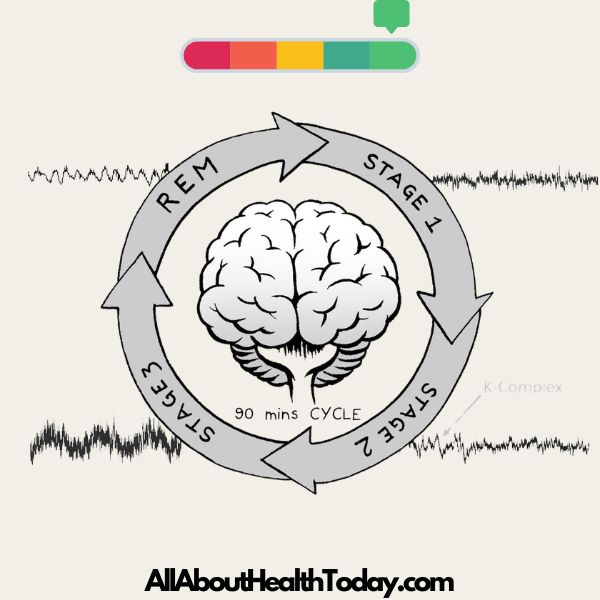What’s sleep quality?
Getting a good night’s sleep isn’t just about feeling rested the next day—it’s a key part of staying healthy. Imagine trying to run a machine without giving it time to cool down and recharge. That’s what happens to your body when you don’t sleep well. Poor sleep can make you feel tired, cranky, and less able to focus. Over time, it can even lead to serious health problems like heart disease or diabetes.

But it doesn’t have to be this way. By learning about and practicing good sleep hygiene, you can improve your sleep and, in turn, your overall health. Whether you’re young or old, educated or not, the steps to better sleep are simple and can make a big difference in your life.
The Science of Sleep Hygiene
Sleep is your body’s way of recharging and repairing itself.
When you get good sleep:
- Your immune system gets stronger, helping you fight off illnesses.
- Your heart stays healthy, reducing the risk of heart problems.
- Your brain works better, improving memory and focus.
But when you don’t sleep well:
- You’re more likely to gain weight and have issues like diabetes.
- Your memory and mood can suffer, making it harder to think clearly and stay positive.
- You’re at a higher risk of getting sick, since your body can’t fully recharge.

Steps to Good Sleep
Good sleep doesn’t happen by accident; it’s the result of healthy habits. Here are some key elements to focus on:
- Consistent Sleep Schedule: Go to bed and wake up at the same time every day, even on weekends. This helps set your body’s internal clock.
- Creating a Restful Environment: Make sure your bedroom is dark, quiet, and cool. A comfortable mattress and pillow also make a big difference.
- Limiting Screen Time Before Bed: Turn off screens like phones, TVs, and computers at least an hour before bedtime. The light from screens can trick your brain into staying awake.
Practical Tips for Improving Sleep Hygiene
Getting quality sleep means creating habits and routines that make it easier to fall asleep and stay asleep. Here are some practical steps and key components to help you get started:
Establishing a Bedtime Routine
- Set a Regular Bedtime: Choose a time to go to bed each night and stick to it, even on weekends. Consistency helps regulate your body’s internal clock.
- Wind Down Before Bed: Spend 30-60 minutes doing relaxing activities before bed. This could include reading a book, taking a warm bath, or listening to calming music.
- Avoid Stimulating Activities: Stay away from intense exercise, heavy meals, and caffeine close to bedtime. These can make it harder for your body to relax.
Managing Stress and Relaxation Techniques
- Practice Deep Breathing: Take slow, deep breaths to calm your nervous system and prepare your body for sleep.
- Try Progressive Muscle Relaxation: Gradually tense and then release each muscle group in your body, starting from your toes and working your way up to your head. This helps release physical tension.
- Incorporate Meditation or Mindfulness: Spend a few minutes focusing on your breath or repeating a calming mantra. This can help quiet your mind and reduce pre-sleep anxiety.
Creating a Sleep-Friendly Environment
- Keep Your Room Dark: Use blackout curtains or an eye mask to block out light, which can interfere with sleep.
- Control Noise: Use earplugs or a white noise machine to drown out any disruptive sounds.
- Maintain a Comfortable Temperature: A cool room, around 65°F (18°C), is often ideal for sleep. Make sure your bedding is comfortable and suitable for the season.
Limiting Screen Time Before Bed
- Turn Off Electronics: Power down TVs, smartphones, and computers at least an hour before bed. The blue light emitted by screens can interfere with your body’s natural sleep-wake cycle.
- Use a Blue Light Filter: If you must use a device before bed, consider installing a blue light filter to reduce its impact on your sleep.
- Engage in Offline Activities: Replace screen time with activities like reading a book, journaling, or doing a puzzle. These can help you relax and prepare for sleep.
Featured Product
Apple Watch – Your All-In-One Sleep Companion
The Apple Watch offers advanced sleep tracking, providing insights into your sleep patterns, quality, and duration.
It’s like having a sleep coach on your wrist, helping you optimize your nightly rest.

Key Benefits:
- Personalized Sleep Insights: Track your sleep stages (light, deep, and REM) to better understand your sleep quality and make adjustments.
- Gentle Wake-Up Alarms: Wake up refreshed with silent, vibrating alarms that gently nudge you out of sleep without disturbing your partner.
- Daily Sleep Goals: Set and achieve sleep goals tailored to your lifestyle, with friendly reminders to wind down at night.
- Health Integration: Sync seamlessly with your Apple Health app, allowing you to see how sleep impacts your overall health and wellness.

Key Points
Let’s recap:
- Consistency is Key: Stick to a regular sleep schedule to help regulate your body’s internal clock.
- Create a Relaxing Bedtime Routine: Engage in calming activities before bed, like reading or taking a warm bath.
- Manage Stress: Use techniques like deep breathing and meditation to reduce stress and prepare your body for sleep.
- Optimize Your Sleep Environment: Keep your bedroom dark, quiet, and cool to create the ideal conditions for restful sleep.
- Limit Screen Time: Reduce exposure to screens before bed to avoid disrupting your sleep cycle.
Prioritizing sleep hygiene can lead to better sleep and overall health. By making small changes to your routine and environment, you can significantly improve the quality of your rest. Check out our product review for the 🔥Hottest selling white-noice machine on the market today.




